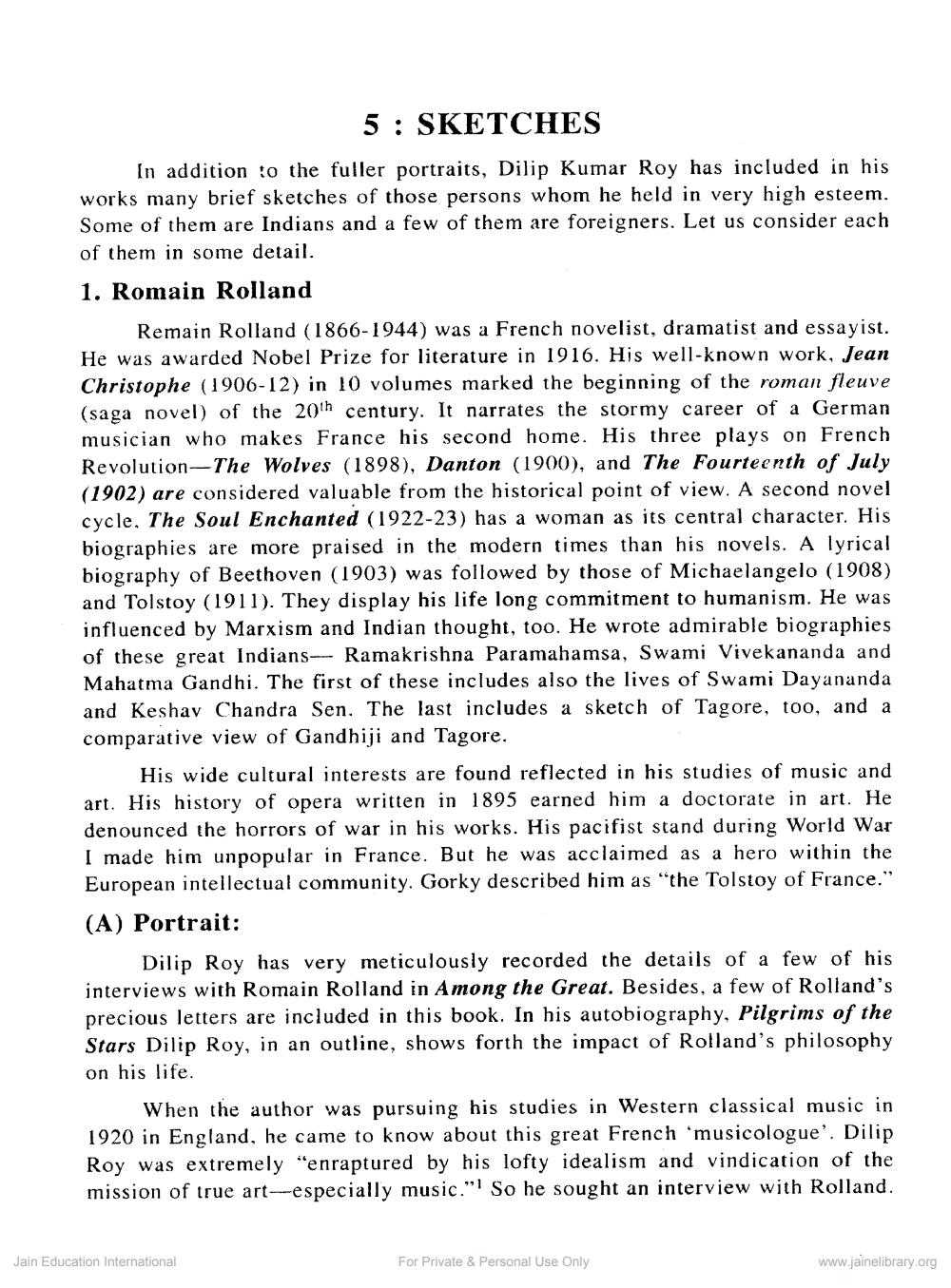________________
5: SKETCHES
In addition to the fuller portraits, Dilip Kumar Roy has included in his works many brief sketches of those persons whom he held in very high esteem. Some of them are Indians and a few of them are foreigners. Let us consider each of them in some detail.
1. Romain Rolland
Remain Rolland (1866-1944) was a French novelist, dramatist and essayist. He was awarded Nobel Prize for literature in 1916. His well-known work, Jean Christophe (1906-12) in 10 volumes marked the beginning of the roman fleuve (saga novel) of the 20th century. It narrates the stormy career of a German musician who makes France his second home. His three plays on French Revolution-The Wolves (1898), Danton (1900), and The Fourteenth of July (1902) are considered valuable from the historical point of view. A second novel cycle, The Soul Enchanted (1922-23) has a woman as its central character. His biographies are more praised in the modern times than his novels. A lyrical biography of Beethoven (1903) was followed by those of Michaelangelo (1908) and Tolstoy (1911). They display his life long commitment to humanism. He was influenced by Marxism and Indian thought, too. He wrote admirable biographies of these great Indians- Ramakrishna Paramahamsa, Swami Vivekananda and Mahatma Gandhi. The first of these includes also the lives of Swami Dayananda and Keshav Chandra Sen. The last includes a sketch of Tagore, too, and a comparative view of Gandhiji and Tagore.
His wide cultural interests are found reflected in his studies of music and art. His history of opera written in 1895 earned him a doctorate in art. He denounced the horrors of war in his works. His pacifist stand during World War I made him unpopular in France. But he was acclaimed as a hero within the European intellectual community. Gorky described him as "the Tolstoy of France."
(A) Portrait:
Dilip Roy has very meticulously recorded the details of a few of his interviews with Romain Rolland in Among the Great. Besides, a few of Rolland's precious letters are included in this book. In his autobiography, Pilgrims of the Stars Dilip Roy, in an outline, shows forth the impact of Rolland's philosophy on his life.
When the author was pursuing his studies in Western classical music in 1920 in England, he came to know about this great French 'musicologue'. Dilip Roy was extremely "enraptured by his lofty idealism and vindication of the mission of true art-especially music.” So he sought an interview with Rolland.
Jain Education International
For Private & Personal Use Only
www.jainelibrary.org




